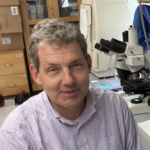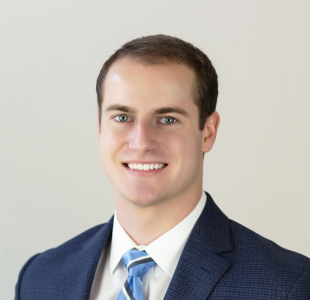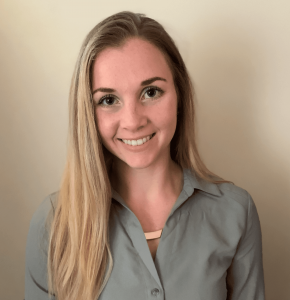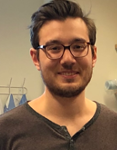The primary goal of our laboratory is to identify pathways that control extracellular matrix (ECM) synthesis and assembly as they relate to fibroproliferative and connective tissue diseases. Our long term goal is to use this knowledge to develop therapeutic strategies for these conditions. Fibroproliferative responses are similar to wound healing processes involving accumulation of contractile myofibroblasts and ECM secretion and assembly. Because organ fibrosis, cardiovascular, metabolic/obesity, and cancer pathologies are now recognized to be regulated by fibroblast-myofibroblast differentiation and ECM remodeling our research is examining control mechanisms in these diseases. Central to our studies is determining the function of Aortic Carboxypeptidase-Like Protein (ACLP), a secreted, collagen-binding protein that enhances fibrosis and myofibroblast differentiation through mechanisms that involve stimulating the transforming growth factor β (TGFβ) receptor signaling complex and controlling mechanical signaling and ECM remodeling. Recent work is uncovering the role of ACLP and AEBP1 genetic mutations in Ehlers Danlos Syndrome and in aortic aneurysm. There are several active projects in the lab including:
- Uncovering new mechanisms that control adipose tissue remodeling and fibrosis
- Defining the the role of ACLP in mechanotransduction pathways that control progenitor cell fate
- Investigating the mechanisms of how ACLP/AEBP1 mutations cause Ehlers Danlos Syndrome (EDS)
Join our team
Research opportunities available
- Graduate students—Interested graduate students should apply to the Program in Biomedical Sciences (PiBS) at BUSM. Once accepted to the program, please contact Dr. Layne to discuss projects and opportunities and research rotations. BU MS/MAMS students should email Dr. Layne
- Boston University undergraduates. Please email Dr. Layne and include a CV and research interests
Laboratory members
Diana Yeritsyan—PhD student
Alexander Yurochko—undergraduate student
Benjamin Werner—undergraduate student
Loren Peretz—MS student
Representative Publications
- Seibel AJ, Frosti CL, Tlemcani AR, Lahiri N, Brammer-DePuy JA, Layne MD, Tien J. Obesity-Associated Conditions Hinder Solute Drainage Function of Engineered Human Lymphatic Vessels. Cellular and Molecular Bioengineering 23 Jan 2025. in press
- Wang T, Kim SY, Peng Y, Zheng J, Layne MD, Murphy-Ullrich JE, Albro MB. Autoinduction-Based Quantification of In Situ TGF-ß Activity in Native and Engineered Cartilage. Tissue Eng Part C Methods. 2024 Nov; 30(11):522-532. PMID: 39311474
- Venugopal S, Dan Q, Sri Theivakadadcham VS, Wu B, Kofler M, Layne MD, Connelly KA, Rzepka MF, Friedberg MK, Kapus A, Szászi K. Regulation of the RhoA exchange factor GEF-H1 by profibrotic stimuli through a positive feedback loop involving RhoA, MRTF, and Sp1. Am J Physiol Cell Physiol. 2024 Aug 01; 327(2):C387-C402. PMID: 38912734
- Dance YW, MC Obenreder, AJ Seibel, T Meshulam, JW Ogony, N Lahiri, L Pacheco-Spann, DC Radisky, MD Layne, SR Farmer, CM Nelson, J Tien. Adipose Cells Induce Escape from an Engineered Human Breast Microtumor Independently of their Obesity Status. Cellular and Molecular Bioengineering (2022)
-
Chen CH, Ho HH, Jiang WC, Ao-Ieong WS, Wang J, Orekhov AN, Sobenin IA, Layne MD, Yet SF. Cysteine-rich protein 2 deficiency attenuates angiotensin II-induced abdominal aortic aneurysm formation in mice. J Biomed Sci. 2022 Apr 12; 29(1):25. PMID: 35414069
-
Rabhi N, Desevin K, Belkina AC, Tilston-Lunel A, Varelas X, Layne MD, Farmer SR. Obesity-induced senescent macrophages activate a fibrotic transcriptional program in adipocyte progenitors. Life Sci Alliance. 2022 May; 5(5).PMID: 35181634.
-
Downs M, Sethi MK, Raghunathan R, Layne MD, Zaia J. Matrisome changes in Parkinson’s disease. Anal Bioanal Chem. 2022 Apr; 414(9):3005-3015. PMID: 35112150
-
Dance YW, Meshulam T, Seibel AJ, Obenreder MC, Layne MD, Nelson CM, Tien J.Cell Mol Bioeng. 2021 Aug 24;15(1):15-29. doi: 10.1007/s12195-021-00697-6. eCollection 2022 Feb. PMID: 35096184
- Wang D, Rabhi N, Yet SF, Farmer SR, Layne MD. Aortic carboxypeptidase-like protein regulates vascular adventitial progenitor and fibroblast differentiation through myocardin related transcription factor A. Sci Reports 2021 Feb 17; 11:3948.
- Hekman RM, Hume AJ, Goel RK, Abo KM, Huang J, Blum BC, Werder RB, Suder EL, Paul I, Phanse S, Youssef A, Alysandratos KD, Padhorny D, Ojha S, Mora-Martin A, Kretov D, Ash PEA, Verma M, Zhao J, Patten JJ, Villacorta-Martin C, Bolzan D, Perea-Resa C, Bullitt E, Hinds A, Tilston-Lunel A, Varelas X, Farhangmehr S, Braunschweig U, Kwan JH, McComb M, Basu A, Saeed M, Perissi V, Burks EJ, Layne MD, Connor JH, Davey R, Cheng JX, Wolozin BL, Blencowe BJ, Wuchty S, Lyons SM, Kozakov D, Cifuentes D, Blower M, Kotton DN, Wilson AA, Mühlberger E, Emili A. Actionable Cytopathogenic Host Responses of Human Alveolar Type 2 Cells to SARS-CoV-2. Mol Cell. 2020 12 17; 80(6):1104-1122.e9. PMID: 33259812
- Jiang WC, Chen CM, Hamdin CD, Orekhov AN, Sobenin IA, Layne MD, Yet SF. Therapeutic Potential of Heme Oxygenase-1 in Aneurysmal Diseases. Antioxidants (Basel). 2020 Nov 19; 9(11). PMID: 33228202
- Zeng C, Motta-Ribeiro GC, Hinoshita T, Lessa MA, Winkler T, Grogg K, Kingston NM, Hutchinson JN, Sholl LM, Fang X, Varelas X, Layne MD, Baron RM, Vidal Melo MF. Lung Atelectasis Promotes Immune and Barrier Dysfunction as Revealed by Transcriptome Sequencing in Female Sheep. Anesthesiology. 2020 11 01; 133(5):1060-1076.. PMID: 32796202
- Vishwanath N, Monis WJ, Hoffmann GA, Ramachandran B, DiGiacomo V, Wong JY, Smith ML, Layne MD. Mechanisms of aortic carboxypeptidase-like protein secretion and identification of an intracellularly retained variant associated with Ehlers-Danlos syndrome. J Biol Chem. 2020 07 10; 295(28):9725-9735. PMID: 32482891
- Lee MJ, Pickering RT, Shibad V, Wu Y, Karastergiou K, Jager M, Layne MD, Fried SK. Impaired Glucocorticoid Suppression of TGFß Signaling in Human Omental Adipose Tissues Limits Adipogenesis and May Promote Fibrosis. Diabetes. 2018 Dec 07. PMID: 30530781.
- Jager M, Lee MJ, Li C, Farmer SR, Fried SK, Layne MD. Aortic carboxypeptidase-like protein enhances adipose tissue stromal progenitor differentiation into myofibroblasts and is upregulated in fibrotic white adipose tissue. PLoS One. 2018; 13(5):e0197777. PMID: 29799877.
- Blackburn PR, Xu Z, Tumelty KE, Zhao RW, Monis WJ, Harris KG, Gass JM, Cousin MA, Boczek NJ, Mitkov MV, Cappel MA, Francomano CA, Parisi JE, Klee EW, Faqeih E, Alkuraya FS, Layne MD, McDonnell NB, Atwal PS. Bi-allelic Alterations in AEBP1 Lead to Defective Collagen Assembly and Connective Tissue Structure Resulting in a Variant of Ehlers-Danlos Syndrome. Am J Hum Genet. 2018 Apr 05; 102(4):696-705. PMID: 29606302.
- McDonald ME, Li C, Bian H, Smith BD, Layne MD, Farmer SR. Myocardin-related transcription factor A regulates conversion of progenitors to beige adipocytes. Cell. 2015 Jan 15; 160(1-2):105-18. PMID: 25579684
- Chen CH, Ho HH, Wu ML, Layne MD, Yet SF. Modulation of cysteine-rich protein 2 expression in vascular injury and atherosclerosis. Mol Biol Rep. 2014 Nov; 41(11):7033-41. PMID: 25034893
- Wu ML, Chen CH, Lin YT, Jheng YJ, Ho YC, Yang LT, Chen L, Layne MD, Yet SF. Divergent signaling pathways cooperatively regulate TGFß induction of cysteine-rich protein 2 in vascular smooth muscle cells. Cell Commun Signal. 2014; 12:22. PMID: 24674138
- Tumelty KE, Smith BD, Nugent MA, Layne MD. Aortic carboxypeptidase-like protein (ACLP) enhances lung myofibroblast differentiation through transforming growth factor ß receptor-dependent and -independent pathways. J Biol Chem. 2014 Jan 31; 289(5):2526-36.. PMID: 24344132
Complete list can be found at BU Profiles
Courses Taught:



